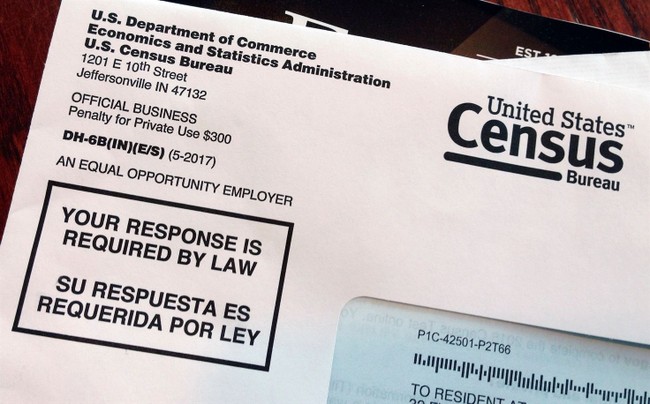The “big, beautiful bill” is going through some massive changes as the Senate Parliamentarian—the chamber’s referee and rule keeper—decides on whether or not to strike provisions that Democrats claim do not belong in a budgetary bill.
It was announced Friday that parliamentarian Elizabeth MacDonough had already nixed a number of provisions, and more are likely to be struck this coming weekend.
The “big, beautiful” budget reconciliation bill is a ten-year fiscal framework that would fulfill a number of President Donald Trump’s campaign promises, such as funding border security and extending his 2017 tax cuts.
The Senate’s Byrd Rule, established in 1985, forbids Congress from including provisions that are not primarily budgetary.
The Senate parliamentarian is essentially the referee who decides on whether or not these provisions follow Senate rules.
In order to bring a provision to be put in the “Byrd bath,” as it is colloquially known, a senator has to raise a point of order.
Provisions Already Struck
Senate Budget Committee Democrats announced Friday Senate Parliamentarian Elizabeth MacDonough has already struck a few provisions from the bill.
Banking provisions were particularly hard hit.
Among these was a provision to cut the Consumer Financial Protection Bureau’s funding down to zero, effectively eliminating the agency.
Sen. Elizabeth Warren, D-Mass., who originally proposed the bureau’s creation, applauded this move.
“These proposals are a reckless, dangerous attack on consumers and would lead to more Americans being tricked and trapped by giant financial institutions and put the stability of our entire financial system at risk,” she said.
“Democrats fought back, and we will keep fighting back against this ugly bill.”
One struck provision would have reduced the salaries of Federal Reserve employees, and another would have repealed Environmental Protection Agency emissions standards for vehicles.
Artificial Intelligence Deregulation
A provision to watch is the big, beautiful bill’s ten-year moratorium on most state regulation of AI—which is meant to support the White House’s goal of competitiveness in AI.
After the bill’s passage through the House, Rep. Marjorie Taylor Greene, who was not familiar with this provision in the 1,000-page mega-bill, said she would not have voted yes if she had known about it.
Speaker of the House Mike Johnson, R-La., however, told The Daily Signal he wanted it to stay in order to support the industry and compete with rivals such as China.
“We have to be careful not to have 50 different states hyperregulating AI, because it has national security implications,” he said.
Greene, however, told The Daily Signal she “will have no part of destroying state rights” to regulate industries.
She did, however, indicated it might not pass Senate Byrd Rule muster.
“What I have heard is that it—the Byrd Rule—it might be taken out in the Senate,” she said. “I’ve heard that, but we’ll see if it happens. That’s what they’ve said, but it’s yet to be seen.”
 Sen. Ed Markey, D-Mass. (Kayla Bartkowski/Getty Images)
Sen. Ed Markey, D-Mass. (Kayla Bartkowski/Getty Images)The provision has proven just as controversial in the Senate, where Sen. Ed Markey, D-Mass., has filed a motion to the parliamentarian to strike it.
Sen. Ted Cruz, R-Texas, a supporter of the moratorium, has used his Senate Commerce Committee chairmanship to tweak it so that it will be resistant to the Byrd Rule.
He did this by tying compliance with AI deregulation to federal broadband funding. Whether or not this deregulation—a priority for the White House—survives remains to be seen.
Gun Rights Protections
Deregulations and tax breaks for firearms will be an important issue for the parliamentarian to examine.
In May, Rep. Andrew Clyde, R-Ga., who appeared to be a last-minute holdout, managed to secure the elimination of taxes on suppressors—an important issue to him as a gun rights advocate.
Now, the parliamentarian will decide whether or not this provision can stay.
If MacDonough nixes a provision that helped win the vote of a possible holdout in the House, it could be a problem for Republicans.
Planned Parenthood
Macdonough will likely also be taking a close look at Republican attempts to defund abortion provider Planned Parenthood.
She ruled against similar provisions in 2017 during Republicans’ attempt to replace the Affordable Care Act
Is a Parliamentarian’s Ruling Final?
The Senate parliamentarian’s rulings are something of a setback to Republicans, but they are not necessarily final.
A simple option is to amend and resubmit the provision so that the parliamentarian no longer considers it in violation.
The Senate can also motion to waive the parliamentarian’s ruling, which requires 60 votes—an unlikely outcome given Republicans’ 53-seat majority and Democrats’ unanimous opposition to the bill.
There is also the option of having the presiding officer of the Senate—in this case Vice President JD Vance—choose to ignore the parliamentarian’s rulings. This would send an earthquake through Washington and shatter precedent.
 Vice President JD Vance. (Tom Williams/CQ-Roll Call, Inc via Getty Images)
Vice President JD Vance. (Tom Williams/CQ-Roll Call, Inc via Getty Images)For context, back in 2021, Rep. Ro Khanna, D-Calif., urged Vice President Kamala Harris to overrule MacDonough striking a $15 minimum wage provision in the American Rescue Act, a reconciliation package.
“I’m sorry—an unelected parliamentarian does not get to deprive 32 million Americans the raise they deserve,” Khanna said at the time. “This is an advisory, not a ruling. VP Harris needs to disregard and rule a $15 minimum wage in order.” Harris ultimately did not pursue this.
There is also the option of removing a parliamentarian, which Republican Senate Majority Leader Trent Lott, R-Miss., did with Parliamentarian Robert Dove in 2001.
These last two options are extremely unlikely, but they are in the Republicans’ toolbox if MacDonough does considerable damage to the main legislative vehicle for enacting Trump’s agenda.
The post Byrd Bath: Senate Referee Could Overhaul ‘Big, Beautiful Bill’ appeared first on The Daily Signal.
.png)














 English (US)
English (US)